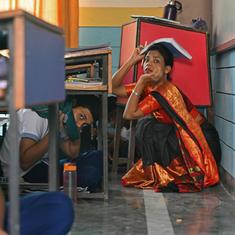Two consecutive setbacks for the Aam Aadmi Party in Punjab have compelled party chief Arvind Kejriwal to himself take charge of next year's state elections, which the party is desperate to win so that it can expand its political footprint.
Speaking to members of the Indian diaspora on Sunday in Vatican City, where he was attending the canonisation of Mother Teresa, the Delhi chief minister said he would take the reins of the party in Punjab.
Head start
Till recently, the going was good for AAP, which had begun laying the ground for its campaign in Punjab as early as 2014. It had beaten rival parties to release its first list of candidates on August 4. With the Shiromani Akali Dal-Bharatiya Janata Party government facing anti-incumbency pressure after two successive terms in power, AAP seemed a strong contender. It appeared like it would offer tough competition to both the ruling alliance and the Congress.
However, the party suffered a major setback late in August with the appearance of a video purportedly showing AAP’s Punjab convenor Sucha Singh Chhotepur accepting a bribe from a party volunteer in exchange for a ticket to contest the polls. A former Akali minister, Chhotepur was one of the party’s few prominent faces in Punjab, instrumental to building its state unit, and was among the front runners for the post of chief minister if AAP won the elections due in February.
Chhotepur, who was unceremoniously sacked from his post on August 26, claimed that he had been humiliated by the party, ruled out any reconciliation with them, and lashed out against AAP for removing him before an inquiry into the sting had even begun.
At a press conference the same day, he alleged that Kejriwal had been upset with him for not shouldering the responsibility of the July debacle over the party's youth manifesto for Punjab, in which AAP's symbol of a broom was pictured alongside the Golden Temple, Sikhism’s holiest shrine.
Chhotepur claimed that when he told Kejriwal he could be excommunicated from the religion for allowing such a mistake, the AAP chief said: "So what if they have thrown you out of the Panth?" While making it clear that he would not return to the party fold, Chhotepur said he would tour the state and seek suggestions from his supporters on what his next steps should be.
Raining setbacks
Even before the party leadership could recover from this jolt, former BJP Member of Parliament Navjot Singh Sidhu, whose move to AAP was almost certain after he resigned from the Rajya Sabha in July, took the party by surprise when he announced on September 2 that he has formed a new front in the state.
Sidhu was reportedly seeking to be projected as the chief ministerial candidate of AAP in Punjab and also wanted a ticket for his wife, Navjot Kaur Sidhu. Kejriwal, however, had put his foot down on both counts.
Sidhu met Kejriwal on August 12, but it was speculated that the meeting had ended in failure because the AAP supremo had later said on Twitter that he would continue to respect the former cricketer whether or not he joins the party.
He is a v gud human being n a ckt legend. My respect for him wud continue whether he joins or not(3/3)
— Arvind Kejriwal (@ArvindKejriwal) August 19, 2016
Sidhu then joined hands with disgruntled Akali Dal MLA and former India hockey captain Pargat Singh as well as two independent MLAs, Simarjit Singh Bains and Balwinder Singh Bains, who hold considerable influence in Ludhiana, to launch the Awaaz-e-Punjab. The former cricketer is yet to formally announce his plans for the group but members have indicated that they will contest the Punjab polls. Chhotepur as well as some other leaders from Akali and Congress have also purportedly shown interest in forming a joint front against the Akali Dal-BJP and the Congress.
In the midst of all this, Bhagwant Mann, the party MP from Sangrur in Punjab, was booked on September 3 on a complaint alleging that he had misbehaved with mediapersons at a party rally last week.
Kejriwal’s decision to appoint actor and stand-up comedian Gurpreet Singh Ghuggi in place of Chottepur as party convenor in Punjab on Sunday has also not gone down too well with the party, as several senior party leaders, such as lawyer HS Phoolka, had been overlooked. He had joined AAP just earlier this year and does not command the kind of respect that Chhotepur had among party members.
Outside control
This is not the first time that cracks have appeared in the party unit in the state. In June last year, two of the party’s four MPs from Punjab, Dharamvira Gandhi and Harinder Singh Khalsa, had protested against Kejriwal’s "arm-twisting tactics” and accused him of having a “dictatorial attitude”. They were suspended from AAP and have not attended any party function or meeting since.
There is growing displeasure among locals in the party unit over Delhiwallas (party leaders from Delhi) controlling the Punjab unit, the poll campaign and selecting candidates. There has also been internal opposition to at least 25 of the 32 candidates declared so far for the Punjab elections.
This resentment against the party being dominated by perceived outsiders will be the first challenge that Kejriwal will have to tackle as he shifts his focus to Punjab and takes charge of the party in the state.










